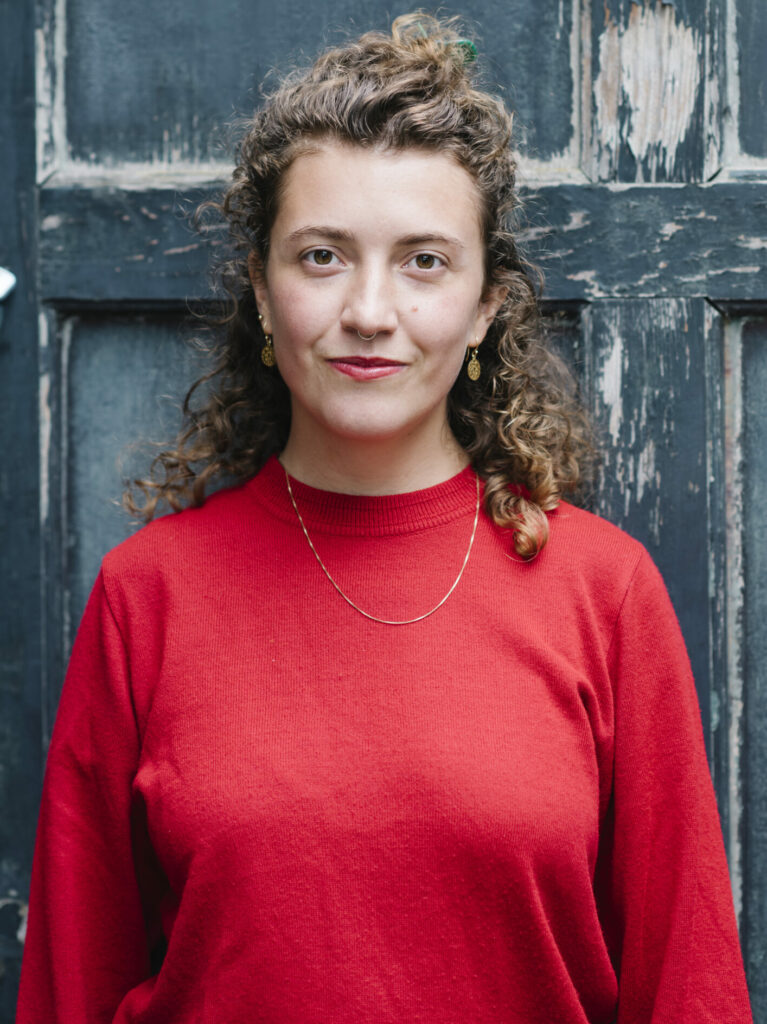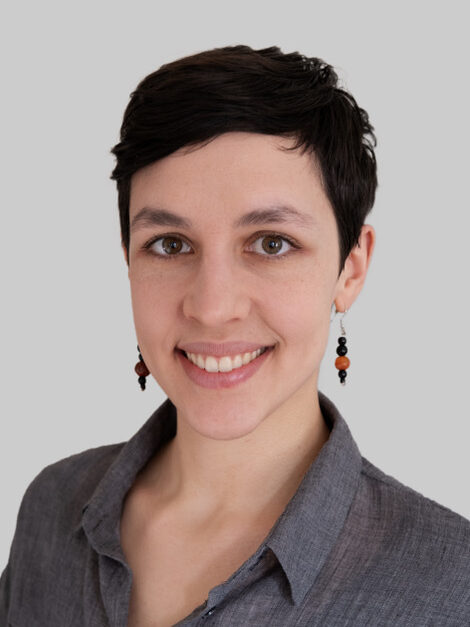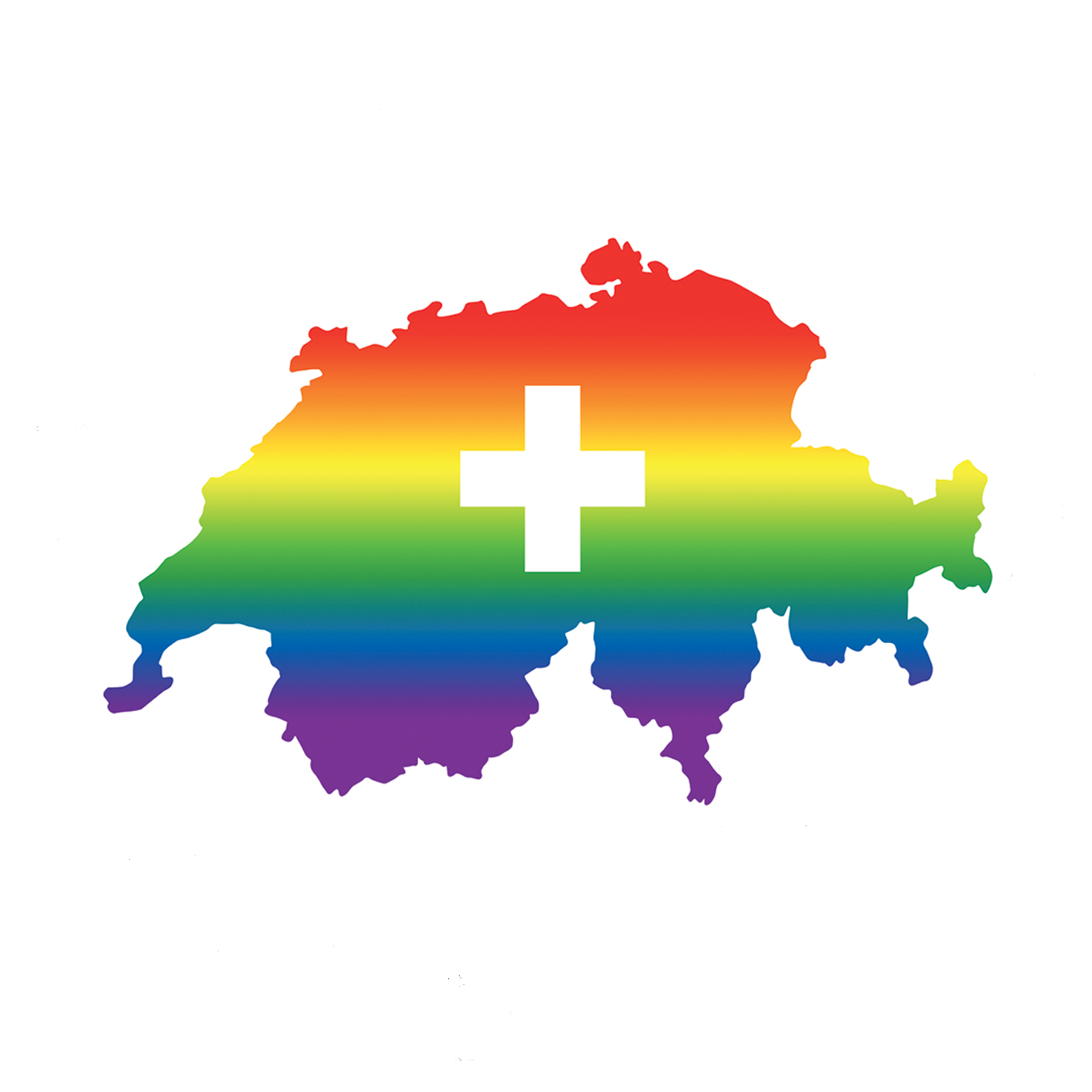Finished: The impact of perceived social norms on the psychological well-being of members of sexual and gender minorities
Social norms play an important role in our daily lives and in the way we behave within a community. Individuals – often members of minority groups – who violate these social norms may experience feelings of exclusion or distress. The aim of this study is to examine the influence of perceived intolerant social norms on the psychological well-being of members of sexual and gender minorities.
Nuria Hilfiker, supervised by Léïla Eisner (University of Zurich)
Published: Intersectionality within the LGBTIQ+ context: Discrimination, identification, and negative affect
Heilmann, S., Hässler, T., Theissing, L. & Eisner, L. (2024). Intersectionality within the LGBTIQ+ context – Discrimination, identification, and negative affect. Stigma & Health. Advance online publication. https://doi.org/10.1037/sah0000591
LGBTIQ+ people who belong to more than one marginalized group, such as queer people of color or queer people with chronic health conditions, can face discrimination even from within the communities they are part of. This study looked at how this kind of discrimination from inside affects well-being. This study focused on two groups: LGBTIQ+ people with an ethnic minority background and LGBTIQ+ people with health disparities. Results from the ethnic context reveal that discrimination originating from both the LGBTIQ+ and ethnic groups can lead to negative well-being. However, in the health disparity context, this is true only for discrimination coming from people with disabilities or neurodiversity against LGBTIQ+ people. These findings show how important it is to understand and address discrimination within marginalized communities – not just from outside of them.
Simone Heilmann, supervised by Léïla Eisner (University of Zurich) and Tabea Hässler (University of Zurich)

Published: Gendernauts in the cistem: How do nonbinary people handle social groups and gender minority stress?
Schaad, L., Wilhelmy, A., Ullrich, J., Eisner, E. & Hässler, T. (2025). Gendernauts in the cistem: How do non-binary people in Switzerland navigate in a binary social world? Journal of Homosexuality. Advance online publication. https://doi.org/10.1080/00918369.2025.2461688
This study examines how non-binary individuals experience and navigate minority stress within the mainly binary social environment of Switzerland. Findings from focus groups with 16 non-binary individuals and 14 social identity maps reveal three circles of social groups, differing in their closeness and importance: circle 1 (family, relationship partners, and friends), circle 2 (coworkers, members of LGBTIQA+ communities, and other acquaintances), circle 3 (people in public, media, the Swiss state and law, health care system). Participants particularly do not feel affirmed or supported by the social groups within the third circle–such as the Swiss public, state, media, and (mental) health system. Support is perceived mostly from groups within the first circle–such as partners, friends, and close family members– but also the second circle–such as some coworkers, or supervisors as well as LGBTIQA+ communities. Importantly, discrimination from social groups that are more central is perceived as particularly hurtful. Here, non-binary people put continued efforts into educating people about their identity, which was perceived as exhausting and frustrating. We conclude by providing mostly participant-generated recommendations for improving the inclusion of non-binary people in society, politics, and health care.
Loren Schaad, supervised by Tabea Hässler (University of Zurich) and Léïla Eisner (University of Zurich)

Published: Not straight enough, nor queer enough: Identity denial, stigmatization, and negative affect among bisexual and pansexual people
Thöni, C., Eisner, L., & Hässler, T. (2024). Not straight enough, nor queer enough: Identity denial, stigmatization, and negative affect among bisexual and pansexual people. Psychology of Sexual Orientation and Gender Diversity, 11(2), 237-249. https://doi.org/10.17605/OSF.IO/SXKBN
People who are attracted to multiple genders, such as bisexual or pansexual people, report poorer mental health than people who are attracted to only one gender. One contributing factor could be the denial of their sexual orientation (i.e., identity denial). Plurisexual people experience discrimination from both the LGBTIQ+ community and heterosexual people. Distinguishing who identity denial comes from and how it is processed is central to understanding identity denial processes and informing future interventions to increase the mental health of bisexual and pansexual individuals.
Cynthia Thöni, supervised by Tabea Hässler (University of Zurich) and Léïla Eisner (University of Zurich)

Finished: How discrimination affects the well-being of sexual minority members
The aim was to better understand the mechanisms whereby discrimination affects the well-being of sexual minority members. Differences in experiences of discrimination and well-being across different subgroups were examined, and a comprehensive overall model was examined, which took the factors internalized LGBTIQ+ negativity, connectedness to the LGBTIQ+ scene, social support and pride into account.
Patrizia Eicher, supervised by Tabea Hässler (University of Zurich) and Léïla Eisner (University of Zurich)

Finished: Changes in well-being and perceived discrimination among LGBTIQ+ people
Using econometric methods such as the Difference-in-Differences approach, we try to assess how well-being and perceived discrimination among LGBTIQ+ people have changed between 2020 and 2021. People’s coming-out is not a one-time event but a continuous process. How does it affect LGBTIQ+ people’s well-being when they out themselves to more people over time? This is the focus of Alexandre’s master’s thesis. Abigaël, in turn, focuses on recent legal changes. In 2020, Swiss people voted in favor of extending the anti-discrimination law to also include sexual orientation. Abigaël examines how this vote affects the level of discrimination that LGBTIQ+ people experience.
Alexandre Dey and Abigaël Lecomte, supervised by Martin Huber (University of Fribourg), Léïla Eisner (Universities of Zurich), and Tabea Hässler (University of Zurich)
